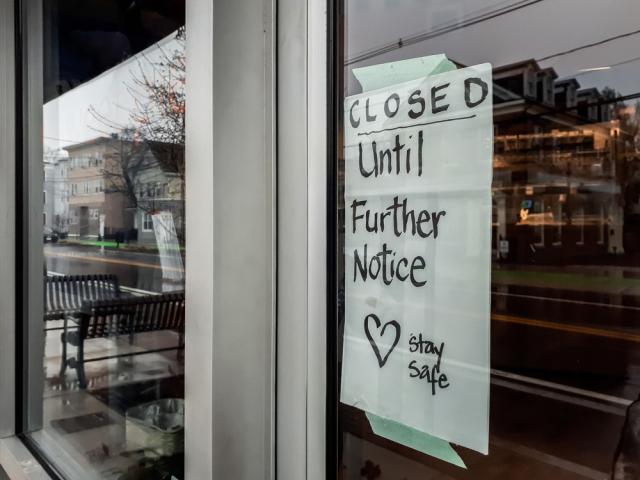- The CUSP database is designed to facilitate rapid research, journalism, and policy action to improve population health and equity
- Created by researchers at Boston University, CUSP tracks policies to prevent COVID-19 and address economic impacts
- Anyone can access the database from its easy-to-use website and explore how each state, plus the District of Columbia, has reacted during this pandemic
Links:
Contact: Shayna Zeigen, shayna@gomixte.com, 619-732-0789 x742
WHAT: The COVID-19 U.S. State Policy Database, called CUSP, tracks the dates when all 50 states and the District of Columbia changed health and social policies in response to the COVID-19 pandemic and unemployment crisis. Free to access, the database allows for the evaluation of the impact of those policies on outcomes, such as the number of COVID-19 cases and deaths, as well as financial security, food security, housing security, and mental well-being.
Led by Dr. Julia Raifman, ScD, SM, Assistant Professor at Boston University School of Public Health, this comprehensive and interactive website hosts the CUSP database and is continuously updated as new policies are identified and tracked.
WHY: As the country looks to recover from one of the most challenging periods in this century, the CUSP database will provide many answers to the most pressing questions in regards to COVID-related policies and progress.
The database is specifically designed to track policies likely to shape health and economic precarity among populations most affected by COVID-19 and the unemployment crisis, including Black, Latinx, and Native American people and people in low-income households. While historical health and social policies shaped racial and ethnic disparities in COVID-19 and in unemployment during the pandemic, current policies such as mask orders, workplace protections, unemployment insurance, stimulus checks, and eviction freezes take on high importance during a period of increased vulnerability to infectious disease and economic precarity.
WHO: Spearheaded by Dr. Raifman and CUSP Database Manager Alex Skinner, the CUSP database was created by about 30 Boston University graduate students and is funded in part by Evidence for Action, a national program office of the Robert Wood Johnson Foundation. The database is intended to be a free resource for journalists, researchers, and policymakers.
WHAT’S NEXT: Dr. Raifman and her team will host a virtual launch event on April 5, 2021 at 12:00 p.m. EDT to illustrate the full capabilities of CUSP, demonstrating how journalists, scholars, and change-makers can utilize the database.
For more information on this upcoming demonstration, please email shayna@gomixte.com.
QUOTES:
“The dynamic nature of both COVID-19 and the resultant public health prevention and economic support measures makes it incredibly challenging to determine which solutions work best,” says Erin Hagan, Deputy Director of Evidence for Action. “The CUSP database is a critical tool to protect the health and financial well-being of Americans.”
“As we continue to navigate the pandemic, the CUSP database will provide timely, valuable insights to inform decision-making about COVID policies and practices,” says Claire Gibbons, Senior Program Officer at the Robert Wood Johnson Foundation. “These insights can also aid efforts to establish a Culture of Health in the U.S., where everyone has an opportunity to live a healthy life.”
“At a time of immense vulnerability to infectious disease and economic precarity, it is essential that we inform policies that improve health and well-being now and in the decades to come,” says Dr. Julia Raifman, Assistant Professor at Boston University School of Public Health and lead researcher for CUSP. “We hope CUSP makes it possible for journalists and researchers to learn about how health and economic outcomes changed before and after states changed their policies. Together, we hope we can shape a healthier, more equitable world as we emerge from the height of the pandemic.”
ADDITIONAL DETAILS:
- Interviews: Contact Shayna Zeigen at shayna@gomixte.com to coordinate interviews with Evidence for Action staff or the CUSP researcher team.
- Links to use in your story:
###
ABOUT EVIDENCE FOR ACTION
Evidence for Action is a national program of the Robert Wood Johnson Foundation administered by the University of California, San Francisco. The program funds investigator-initiated research to build a culture of health that enables all members of society to lead healthier lives now and for generations to come. E4A grantees conduct innovative, rigorous research on the impact of programs, policies, and practices on health and well-being, with a particular focus on improving population health and health equity. Research results help identify actionable strategies and priorities for building a culture of health. To learn more, visit www.evidenceforaction.org/.
ABOUT ROBERT WOOD JOHNSON FOUNDATION
For more than 45 years the Robert Wood Johnson Foundation has worked to improve health and health care. The Foundation is working alongside others to build a national Culture of Health that provides everyone in America a fair and just opportunity for health and well-being. For more information, visit www.rwjf.org. Follow the Foundation on Twitter at www.rwjf.org/twitter or on Facebook at www.rwjf.org/facebook.
